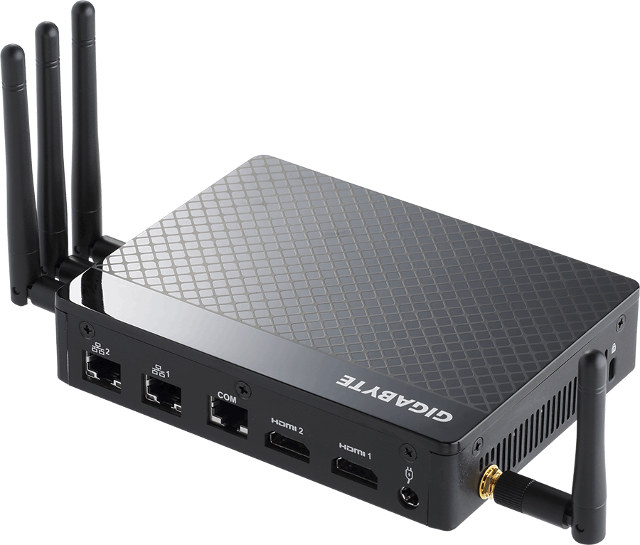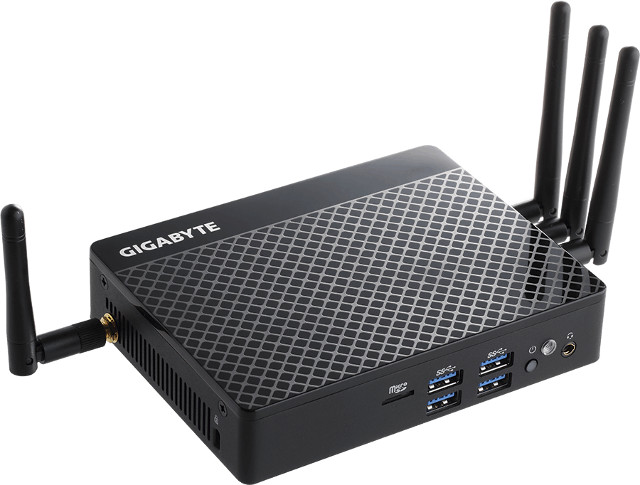GIGABYTE will soon introduce their EL-30 “Intel Apollo Lake IoT Gateway Solution” powered by a quad core Intel Pentium N4200 with 32GB storage, dual Gigabit Ethernet ports, dual HDMI ports, WiFi and Bluetooth connectivity, as well as a mini PCIe slot for 3G module or mSATA storage, and an optional Zigbee module.
 GIGABYTE EL-30 specifications:
GIGABYTE EL-30 specifications:
- SoC – Intel Pentium processor N4200 with 4 cores, 4 threads @ 1.10 – 2.50 GHz with 2MB L2 cache, 18EU Intel HD Graphics 505 (6W TDP)
- System Memory – 2x SO-DIMM slots for DDR3L 1600/1866MHz memory up to 8GB
- Storage -32GB eMMC flash + 1x SD card slot + optional mSATA module
- Video Output – 2x HDMI 1.4b ports up to 3840×2160@30 Hz
- Audio – Via HDMI ports, 3.5mm audio jack (headphone + mic), Realtek ALC255 audio codec
- Connectivity
- 2x GbE LAN ports (Realtek RTL8111HS)
- Pre-installed WiFi + Bluetooth module in half-size mini PCIe slot
- 1x Zigbee module (optional)
- USB – 4x USB 3.0 ports + 1x internal USB 2.0 header
- Serial – 1x COM port (RJ45), 1x micro USB 5-pin RS232 full-duplex port (TxD, RxD, CTS, RTS, GND)
- Expansion
- 1x Full-size Mini-PCIe slot for 3G module or mSATA storage
- 1 x Half-size Mini-PCIe slot used by pre-installed WiFi+BT module
- 10-pin GPIO header, SPI-SMB header, RS232 header, and “80H” LPC port on motherboard
- Misc – Power button with LED, HDD/SSD activity LED, 1x TPM header, Kensington lock slot
- Power Supply – 19V (65W) DC / 100~240V AC
- Dimensions – 140.8 x 107.5 x 29.5 mm
- Weight – 560 grams
- Temperature Range – Operating: 0°C to 40°C; storage: -20°C to 60°C
The fanless IoT gateway will run Windows 10 64-bit, Windows 10 IoT, Ubuntu 16.04 LTS, or Android N. It will ship with a quick start guide, a 19V power adapter and a US power cord.
Pricing is unknown, but we do know production is scheduled for Q2 2017. More details – including the Quick Start Guide – can be found on the product page.
Thanks to Paul for the tip.

Jean-Luc started CNX Software in 2010 as a part-time endeavor, before quitting his job as a software engineering manager, and starting to write daily news, and reviews full time later in 2011.
Support CNX Software! Donate via cryptocurrencies, become a Patron on Patreon, or purchase goods on Amazon or Aliexpress





